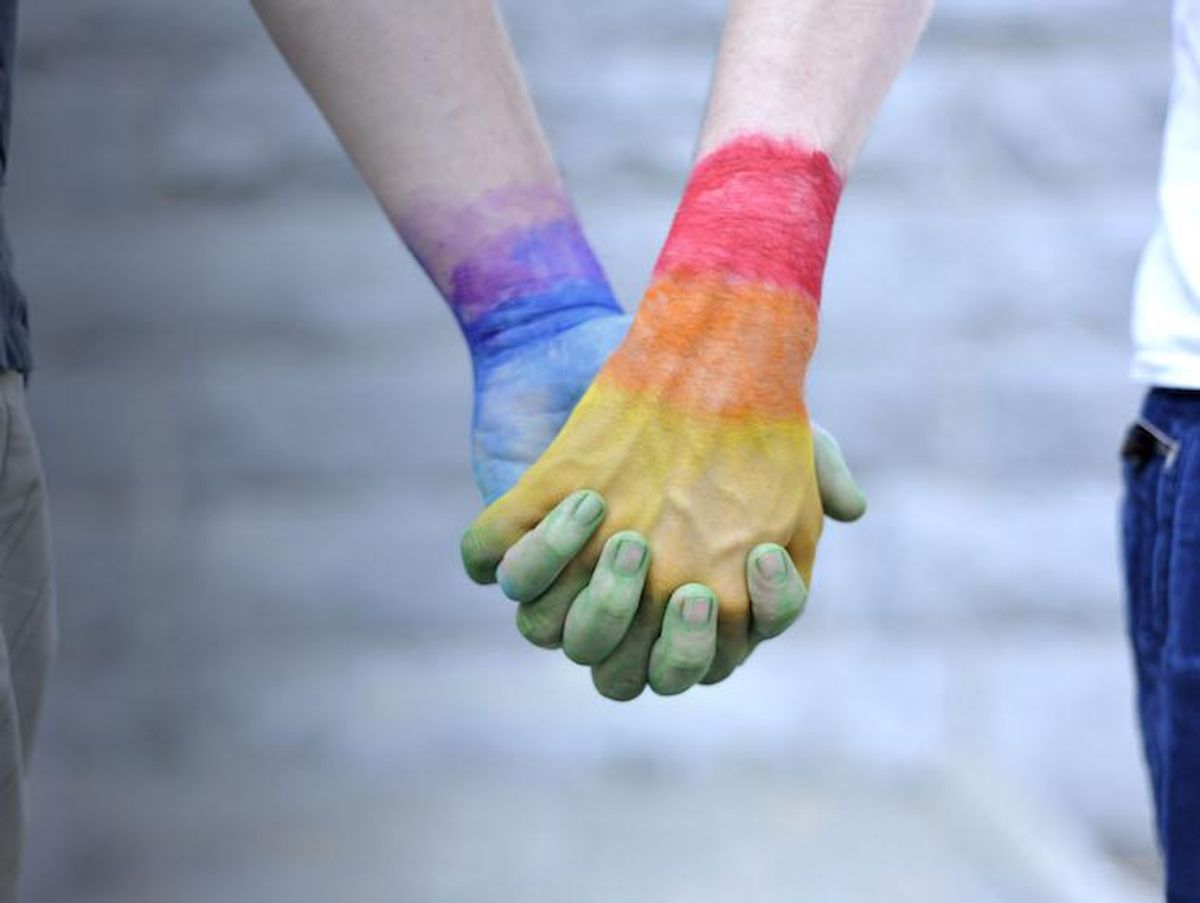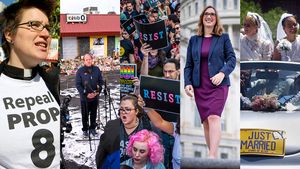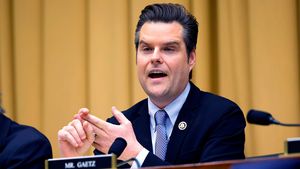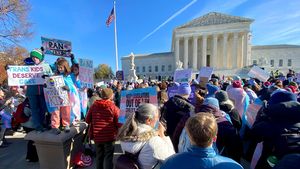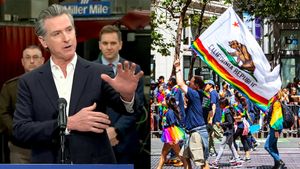In the same year as the Human Rights Act came into law across the UK, seven gay and bisexual men -- aged between 17 and 55 -- were convicted of gross indecency. Known as the Bolton 7, their crime was participation in consensual group sex -- it was illegal for more than two men to have sex together -- and sex with someone under the age of consent, which stood at 18 for gay men. Their sentences included suspended prison sentences, fines, and enrollment on the Sex Offenders Register. Both activities were legal for heterosexuals.
It was 1998 and as well as an unequal age of consent and the fact gay men were still being convicted of gross indecency (despite the supposed decriminalisation in 1967), the infamous Section 28 was still in place and LGBT people had no discrimination protections, couldn't fight in the military and could be fired from their jobs. Homophobic and transphobic abuse, verbal or physical, were not deemed hate crimes. To be transgender was to be legally recognized as mentally ill.
Since the introduction of the Human Rights Act, however, the situation improved rapidly: Less than two decades later and LGBT people have near total legal parity and protection. The Act enshrined the human rights of the 1953 European Convention on Human Rights (ECHR) into UK law, among them freedom of expression and protection from discrimination, not to mention the right to protest, the right to privacy and of course, the right to marry.
Vulnerable children, victims of violence and people with mental illness are just some of the groups that have benefitted from the introduction of Human Rights Act. But the legislation's biggest gainers, by quite some margin, have been the LGBT community.
"The only thing that Parliament ever really did for us, other than criminalizing us in the first place and then introducing section 28, is do a partial decriminalization in 1967," says Jonathan Cooper, chief executive of the Human Dignity Trust, a charity which supports those challenging anti-gay laws across the globe. "I can say quite categorically that without that combination of the ECHR and the Human Rights Act we would have none of the rights that we [LGBT people] have today. Therefore it feels a bit vulnerable to lose something that gave it so much protection."
Whether it was meant as a hung Parliament bargaining chip or a genuine manifesto pledge, an unexpected Conservative majority is now expected by supporters to make good on its promise and scrap the Human Rights Act, replacing it with a "British Bill of Rights." Should they succeed, it could leave the British LGBT community exposed.
"The proposals that are floating around are only about diluting human rights protection, not enhancing it," says Cooper. "It seems very unlikely that we're going to get an HRA plus. That's the trouble with taking it away, where would be without it? I mean they are not going to give you something as good, they're just not."
The Human Rights Act made numerous legal challenges towards Britain's institutional discrimination against LBGT people. As a result of the act's "test of proportionality" the blanket ban on homosexuals serving in the armed forces was lifted, with military chiefs unable to demonstrate a legitimate purpose for upholding the ban and with it being deemed a disproportional action.
"There wasn't a right to protest; you could protest but you didn't have a right to protest," says Cooper. "You didn't have a right to privacy before the Human Rights Act came in to force. There wasn't really a right to equality. It's created this whole culture that we now just take for granted. Which if we lost we would all genuinely feel the difference."
As unlikely as it may seem now in the UK, re-criminalization in Russia and India has shown just how easy it is for the rights afforded to LGBT citizens to be suddenly revoked.
"There was the report that came out recently about rural violence and hatred...we forget about it in London but we're a vulnerable community," says Cooper. "The other danger is they can be taken away. Who knows what a future government could bring. You never know when you need your rights."
Whether or not a British Bill of Rights maintains the same level of protection for the UK's LGBT population remains to be seen. Ironically, it's LGBT people outside of the UK that could stand to lose out if Britain adopted a nationalistic human rights mechanism.
"This step is seen as a step backwards, or a move towards nationalism rather than globalised understandings of human rights," says Dr. Rosa Freedman a senior lecturer at Birmingham Law School and author of Failing to Protect: The UN and the Politicization of Human Rights. "At that point, it becomes very powerful weapon in the hands of regimes that are looking to restrict rights, particularly where it comes to vulnerable groups."
The symbolism of adopting a national human rights, as opposed to a mechanism rooted in Europe, will not be lost on figures like Putin, who, under the guise of national values, would be able to use such a move to justify Russia's anti-LGBT laws. And were the UK to create a Special Envoy for the Protection of LGBT Rights, like the U.S. have in Randy Berry and like Miliband's Labour had planned to do with Michael Cashman, their role would become much harder.
"Countries will say: 'How can you possibly tell us about human rights when you've taken this step back?' " Freedman says. "I think particularly where it comes to the Commonwealth, where this is one of the fundamental battles going on, the minute we take a step back from the human rights matrix, even if it's not legally that we're doing anything differently and it's just political symbolism, it will be seen as and used against the government. It will be used against diplomats who are part of the civil service, who have no ability to sway the government on this, and used against UK-based civil society organizations."
Encouraging nations to adhere to international human rights standards after we ourselves have chosen to regress to our own British standards will reek of hypocrisy to those resisting change. Not only does it become harder for government bodies, diplomats and NGOs to gain leverage in those countries they hope to reform, not to mention impede any move away from claims of Western interventionism, but it could also see other states adopt similar bills.
"If Britain dilutes its level of human rights protection others will follow suit," Cooper says. "And it will have a direct impact -- I can guarantee you -- on any of the notional kinds of successes that there are happening around the world protecting LGBT rights through litigation. They would be much more difficult to establish."
The British LGBT population may not feel the loss of the Human Rights Act immediately; it may not feel its loss at all. But, as Cooper explains, you never know when you'll need your human rights. Whether the "British values" deemed worthy of a place in the British Bill of Rights will offer the same level of protection and freedom to LGBT people (freedom of expression is paramount) remains to be seen. But even if any change is superficial, in title only, it's a hugely symbolic gesture that would jeopardise not just LGBT people, but all persecuted minorities internationally.
